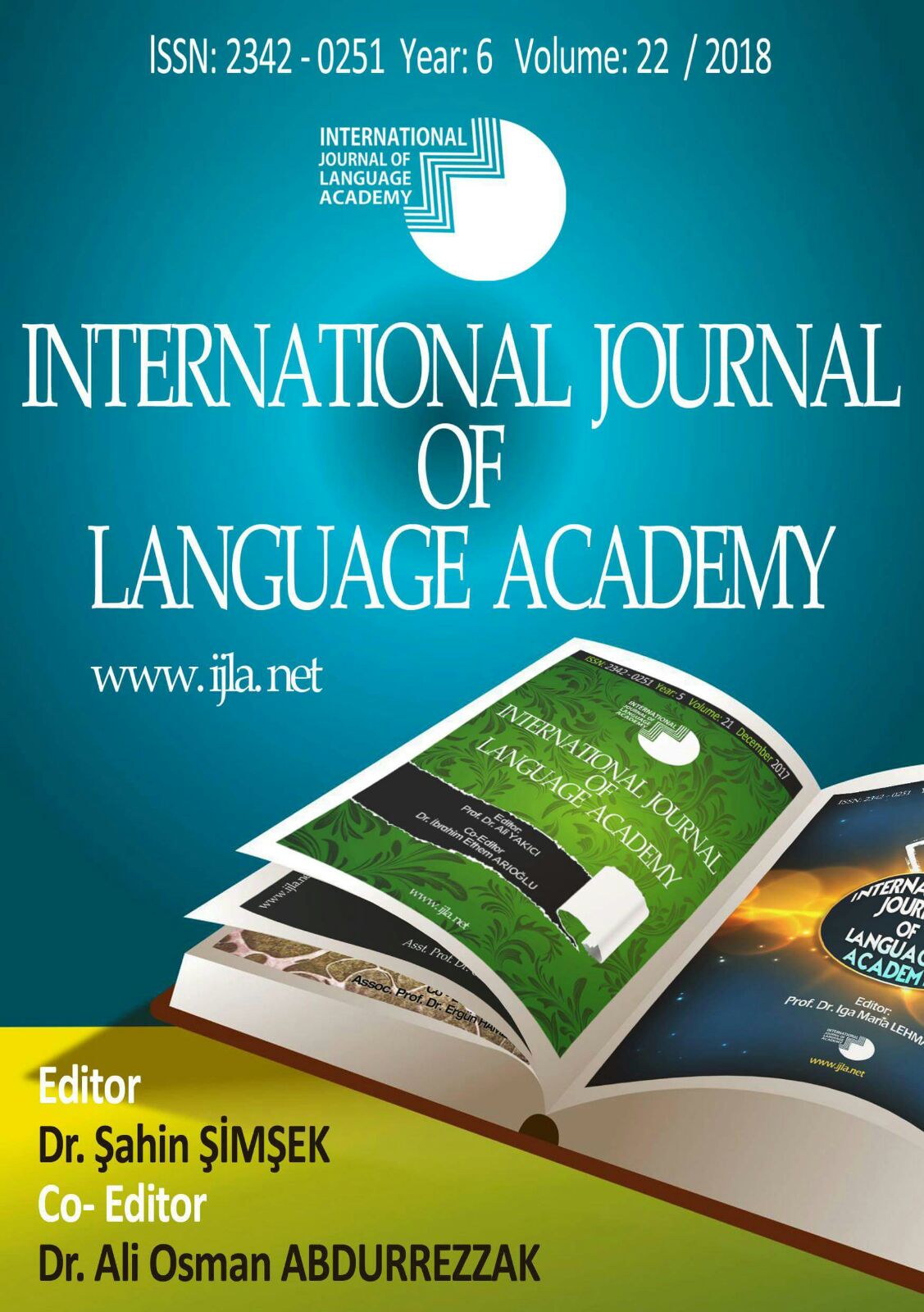Author :
Abstract
Bu çalışmanın amacı ortaokul öğrencilerinin konuşmalarında Türkçe söylem belirleyicisi olarak “şey” in etkileşimli işlevlerini araştırmaktır. Çalışma grubu İzmir ili Bayraklı ilçesindeki Ticaret Borsası Ortaokulu 6, 7 ve 8. sınıflarda okuyan öğrencilerden oluşmaktadır. Örneklem için güç analizi yapılmış ve 60 öğrenci olarak belirlenmiştir. Her sınıftaki grupların dağılımı eşit olarak düzenlenmiştir. Yüz yüze yapılan görüşmelerle, her katılımcının en az 300 sözcükten oluşan konuşma örnekleri kaydedilmiş, çevriyazıya dönüştürülmüş ve konuşma örneklerindeki söylem belirleyicileri incelenmiştir. Türkçede bir söylem belirleyicisi olan “şey” in isim olarak yalın ve ekli kullanımları incelenmiş ve “şey” in temel olarak “konuşmacının kendini düzeltmesi, tereddüt işaret etme, konu değişikliği yapma ve sonraki konuşmayı planlama” işlevlerine sahip olduğu görülmüştür. Söylem belirleyicisi olarak “şey” in tüm sınıflardaki öğrencilerin konuşmalarından elde edilen 158 örneğinde yalın durumda ve ekli olarak (şey, şeyi, şeyler vb.) kullanımı ile diğer kelimelerle birlikte Türkçedeki diğer isimleri oluşturmak için birleştirilmiş kullanımının (bir şey, her şey, hiçbir şey, herhangi bir şey vb.) yaygın olarak kullanıldığı görülmüştür.
Keywords
Abstract
The aim of this study is to investigate the interactional functions of şey as a discourse marker in the speech of secondary school students. The study group consists of the sixth, seventh and eighth grade students in the Ticaret Borsası Secondary School located in the province of Bayraklı in İzmir. Power analysis was done for the sample and the sample was determined as 60 students. The distribution of groups in each class is equally organized. Via face-to-face interviews, speech samples of at least 300 words of each participant were recorded, transcribed, and examined the discourse markers in their speech samples. It has been seen that the şey as a discourse markers with its single-standing and suffixed forms that uses as a name and şey basically has functions of “self-repair, marking hesitation, changing the topic, planning the next talk”. In the 158 examples of şey as the discourse marker from the conversations of students in all classes it has been widely used that single-standing/ suffixed forms (şey, şeyi, şeyler vb.) and combined with other words (bir şey, her şey, hiçbir şey, herhangi bir şey vb.) to create other names in Turkish.





